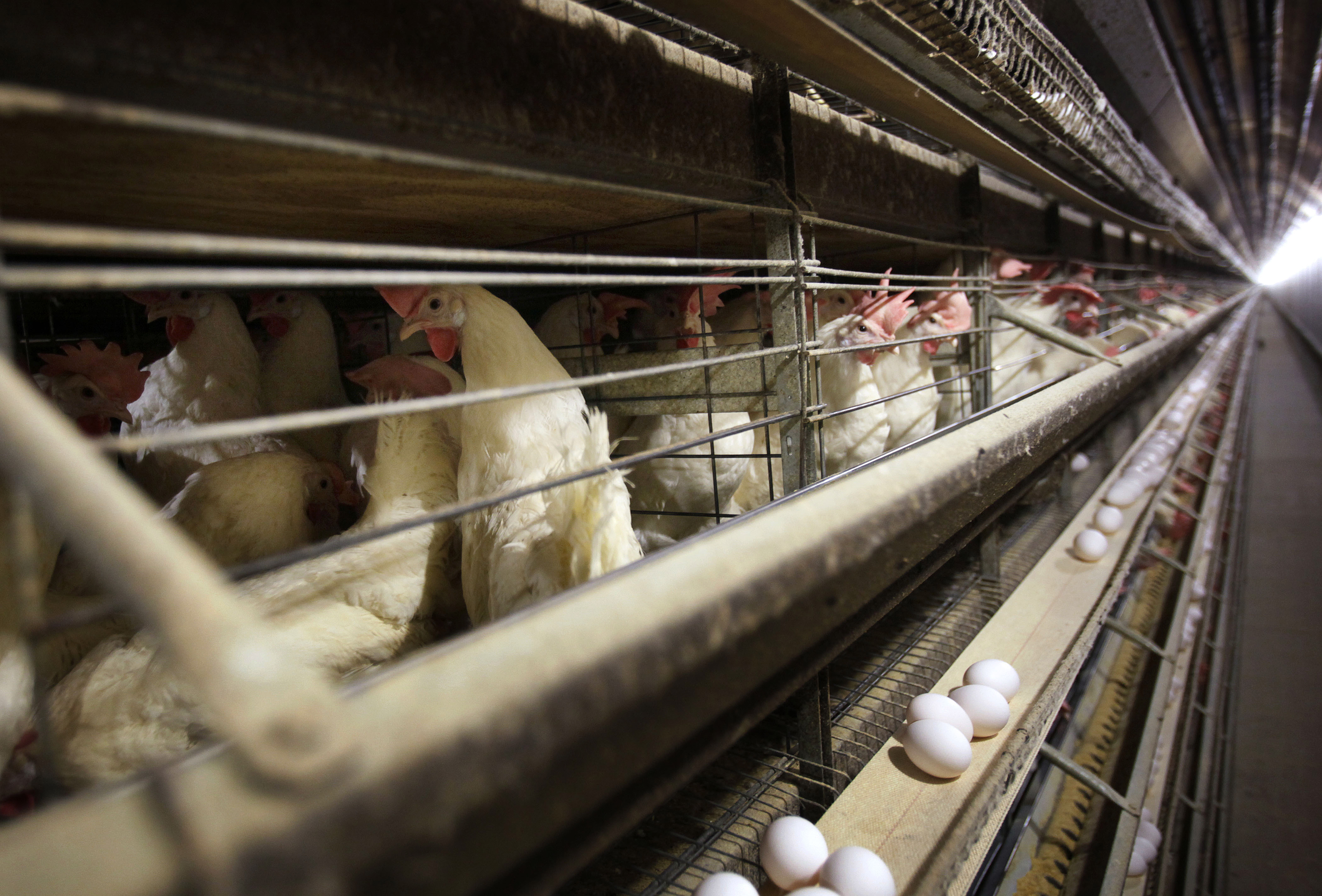
Additional Colorado poultry workers have tested positive for H5 bird flu, the state health department announced Thursday. The department said it has now recorded a total of nine poultry cases; six at one operation and three at another. That’s in addition to the case of a dairy worker earlier this month, the state’s first this year.
Health officials said they are not detecting any spread among the public, which would heighten the urgency of the situation and likely ramp up additional preventive and protective measures.
“The risk to the general public is still low. We are only seeing this in workers with direct contact with these animals,” said Scott Bookman, Senior Director for Public Health Readiness and Response with the Colorado Department of Health and Environment. “The milk supply is safe; the food supply is safe. We are not seeing any evidence of human-to-human transmission.”
Colorado’s state veterinarian called the ongoing spillover of what’s called the H5 bird flu among both commercial dairy herds and poultry flocks, “a growing concern,” on Wednesday.
On Tuesday, the Colorado Department of Agriculture (CDA) said it would now require all licensed farmers to test milk from dairy herds weekly for signs of the virus. The agency said Colorado is the first state to take such a step.
A total of 51 dairy herds in Colorado had tested positive for the virus, as of Thursday, July 25, according to the state’s website, with five herds among that number released from quarantine once tests came back negative.
U.S. health officials last week said they’d identified two more virus cases among farmworkers at a Colorado poultry farm.
“But I do think that we're taking the right strategic steps to try and navigate a good path for us to hopefully find disease freedom. That's our goal,” said Dr. Maggie Baldwin, Colorado State Veterinarian. “We cannot live with this virus sustained in our populations. It is not something that is good for our dairy industry, and it's certainly not something good for our poultry industry where we see significant impacts.”
State and federal health and agricultural officials have described the risk to people who don’t have direct contact with infected animals as low. But Baldwin said it’s not zero. Tackling the virus, she said, “is not only an animal health need, this is also for public health.”
Regarding the milk testing, “I would say it's probably one of the more proactive steps that any state has taken,” said Kay Russo, a Colorado veterinarian with RSM Consulting who has worked with both dairy cows and poultry.
A Michigan Department of Health and Human Services study found that in humans the virus is not causing asymptomatic infections. Previous cases were reported in dairy workers, one in Texas and two in Michigan.
Those Colorado workers infected with it have exhibited mild symptoms, like pink eye, and common respiratory infection symptoms.
“We're doing a nose and an eye depending on symptom sets, but we've tested about a hundred humans at poultry and about 20 humans at dairies,” Bookman said. “We have nine positives out of 120 people that we've tested. So we have a lot of people that are coming back negative.”
None of the cases required hospitalization and there have been no signals of further spread in wastewater, though Bookman noted the cases that have been detected so far are in rural, isolated facilities with wastewater systems that may not be the kind normally tested in larger cities.
The state health department said it would be launching Thursday a new avian flu in humans website, not unlike the one used by the agency during the COVID-19 pandemic. Information will be available on Tuesdays and Thursdays, with the website updated by 4 p.m. on those days.
“We're going to start reporting it out just so that you always have access to it. We're all working off the same sheet of music and all that information is there,” said Bookman.
- Five agricultural workers in northeastern Colorado have now tested positive for bird flu
- Governor Polis issues disaster emergency declaration as new avian flu outbreak detected in Weld County
- Employee at dairy farm contracted Colorado’s first human case of avian flu this year
- Colorado has the most cases of bird flu among dairy cows in the U.S.









